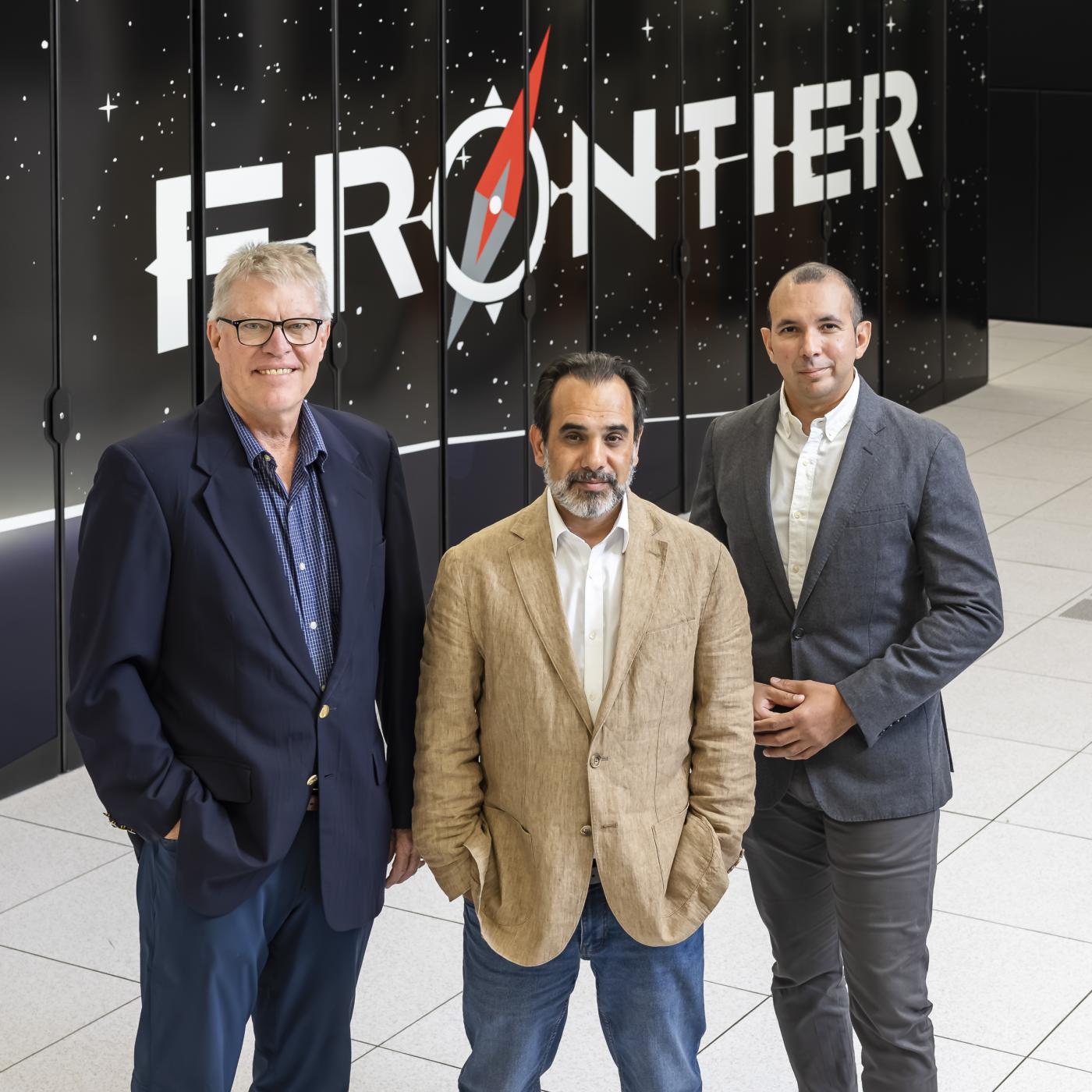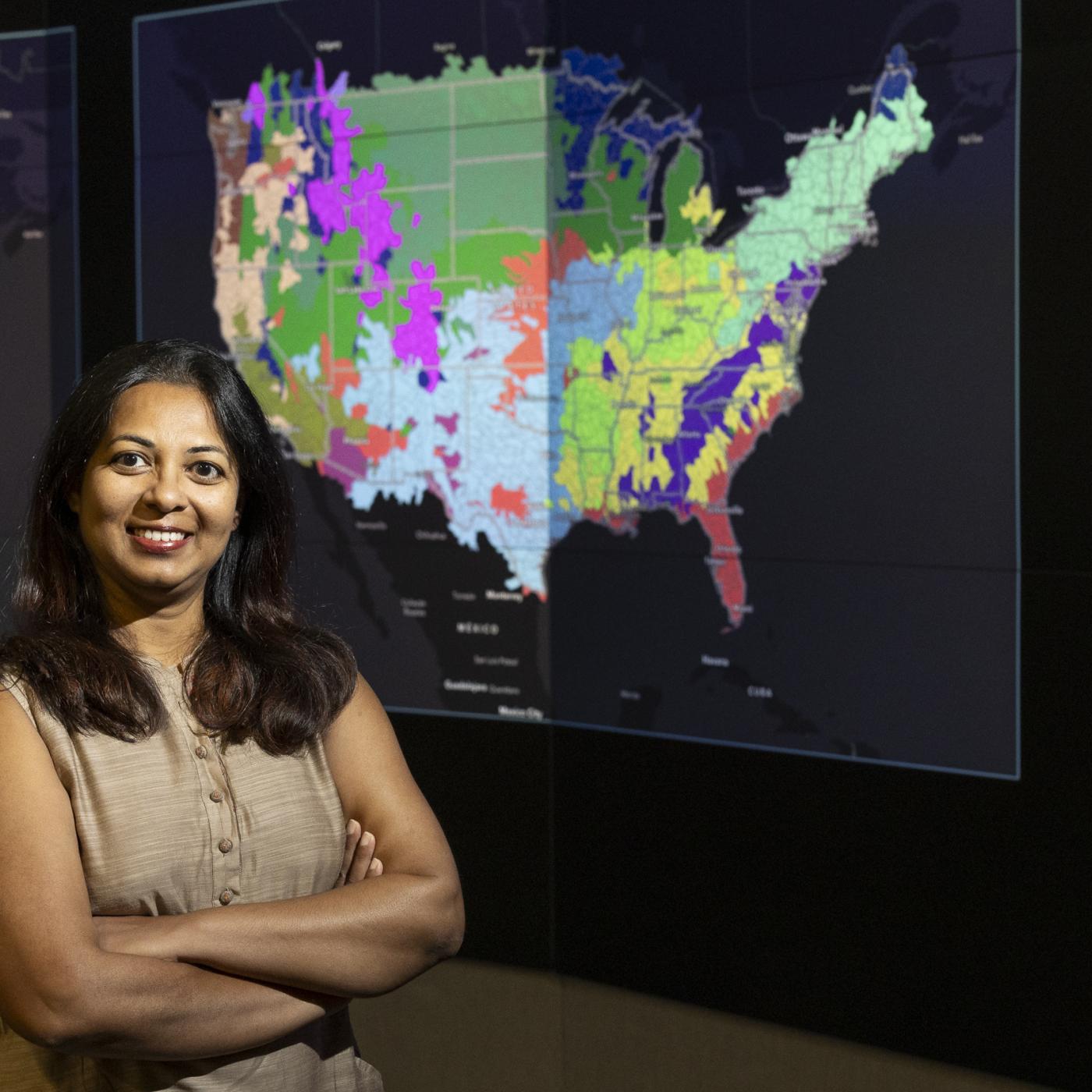
Filter News
Area of Research
- Advanced Manufacturing (22)
- Biology and Environment (26)
- Building Technologies (1)
- Clean Energy (92)
- Computational Engineering (1)
- Fuel Cycle Science and Technology (1)
- Fusion and Fission (3)
- Fusion Energy (1)
- Isotopes (1)
- Materials (30)
- Materials for Computing (5)
- Mathematics (1)
- National Security (36)
- Neutron Science (10)
- Nuclear Science and Technology (4)
- Supercomputing (13)
News Topics
- (-) 3-D Printing/Advanced Manufacturing (125)
- (-) Clean Water (31)
- (-) National Security (71)
- (-) Renewable Energy (2)
- Advanced Reactors (34)
- Artificial Intelligence (97)
- Big Data (60)
- Bioenergy (92)
- Biology (100)
- Biomedical (60)
- Biotechnology (23)
- Buildings (61)
- Chemical Sciences (70)
- Climate Change (104)
- Composites (29)
- Computer Science (195)
- Coronavirus (46)
- Critical Materials (29)
- Cybersecurity (35)
- Decarbonization (82)
- Education (4)
- Element Discovery (1)
- Emergency (2)
- Energy Storage (112)
- Environment (198)
- Exascale Computing (40)
- Fossil Energy (6)
- Frontier (44)
- Fusion (57)
- Grid (66)
- High-Performance Computing (90)
- Hydropower (11)
- Irradiation (3)
- Isotopes (55)
- ITER (7)
- Machine Learning (49)
- Materials (145)
- Materials Science (145)
- Mathematics (9)
- Mercury (12)
- Microelectronics (4)
- Microscopy (51)
- Molten Salt (8)
- Nanotechnology (60)
- Net Zero (14)
- Neutron Science (134)
- Nuclear Energy (110)
- Partnerships (49)
- Physics (63)
- Polymers (33)
- Quantum Computing (37)
- Quantum Science (71)
- Security (25)
- Simulation (49)
- Software (1)
- Space Exploration (25)
- Statistics (3)
- Summit (59)
- Sustainable Energy (130)
- Transformational Challenge Reactor (7)
- Transportation (97)
Media Contacts
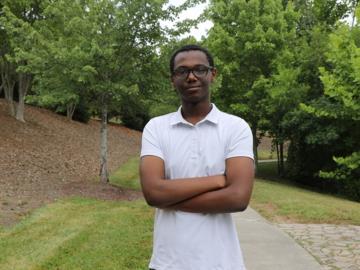
Elton Aba an intern at the Department of Energy’s Oak Ridge National Laboratory, collaborated with researchers to explore an intriguing intersection: how biology can inform cybersecurity. Aba shared some of his findings on how biomimicry could help secure our nation’s critical infrastructure.
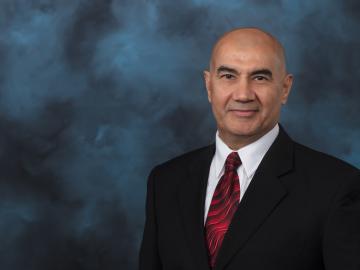
Mohamad Zineddin, a distinguished researcher in nuclear and radiological engineering, recently received the Roger Howsley Award for Excellence in Nuclear Security.
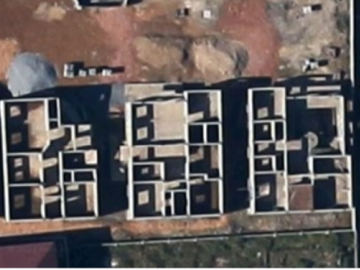
Researchers at ORNL are using satellite images of homes under construction to address gaps in census data, especially in areas like Sub-Saharan Africa. By analyzing these images, they estimate dwelling sizes and population densities where traditional data is sparse. This method improves population estimates and supports national security by enhancing emergency response capabilities.
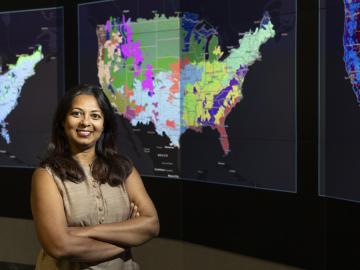
Debjani Singh, a senior scientist at ORNL, leads the HydroSource project, which enhances hydropower research by making water data more accessible and useful. With a background in water resources, data science, and earth science, Singh applies innovative tools like AI to advance research. Her career, shaped by her early exposure to science in India, focuses on bridging research with practical applications.
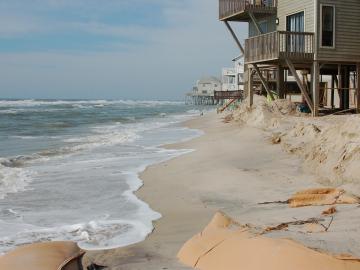
A study found that beaches with manmade fortifications recover more slowly from hurricanes than natural beaches, losing more sand and vegetation. The researchers used satellite images and light detection and ranging data, or LIDAR, to measure elevation changes and vegetation coverage. Changes in elevation showed how much sand was depleted during the storm and how much sand returned throughout the following year.
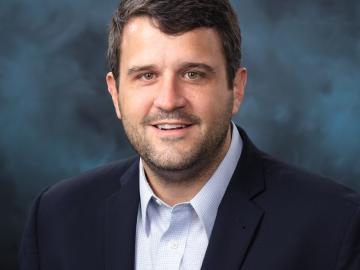
Benjamin Manard, an analytical chemist in the Chemical Sciences Division of the Department of Energy’s Oak Ridge National Laboratory, will receive the 2024 Lester W. Strock Award from the Society of Applied Spectroscopy.
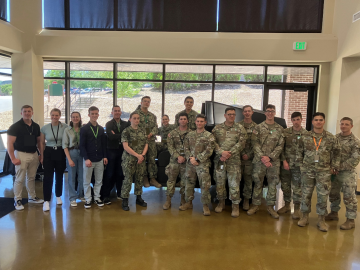
Ten future U.S. Army officers recently visited ORNL to learn about the legacy of nuclear science. As students of the Nuclear Science and Engineering Research Center, or NSERC, with the Defense Threat Reduction Agency, or DTRA, they stopped in East Tennessee as part of a larger tour across nuclear facilities supporting the military. In Oak Ridge, they visited ORNL to gain an appreciation of the history of the Manhattan Project and how research at a national lab contributes new materials and electronics for the nuclear industry.

Two additive manufacturing researchers from ORNL received prestigious awards from national organizations. Amy Elliott and Nadim Hmeidat, who both work in the Manufacturing Science Division, were recognized recently for their early career accomplishments.
Joe Tuccillo, a human geography research scientist, leads the UrbanPop project that uses census data to create synthetic populations. Using a Python software suite called Likeness on ORNL’s high-performance computers, Tuccillo’s team generates a population with individual ‘agents’ designed to represent people that interact with other agents, facilities and services in a simulated neighborhood.
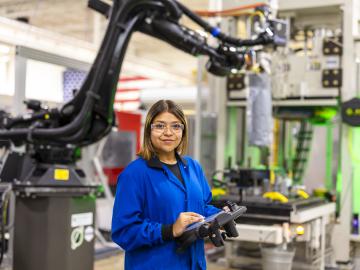
Brittany Rodriguez never imagined she would pursue a science career at a Department of Energy national laboratory. However, after some encouraging words from her mother, input from key mentors at the University of Texas Rio Grande Valley, or UTRGV, and a lot of hard work, Rodriguez landed at DOE’s Manufacturing Demonstration Facility, or MDF, at Oak Ridge National Laboratory.


